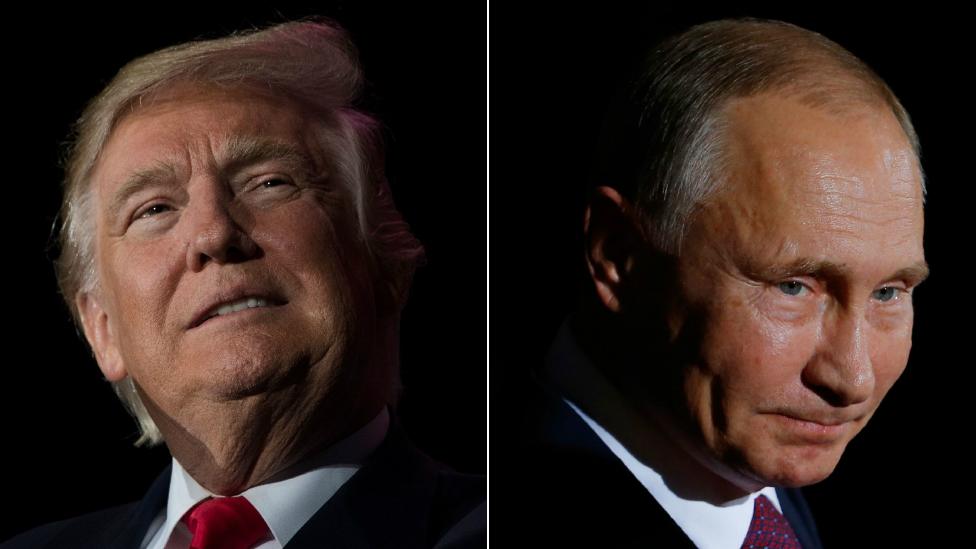Trump-Putin summit: US leader hails 'good start' in Helsinki
- Published
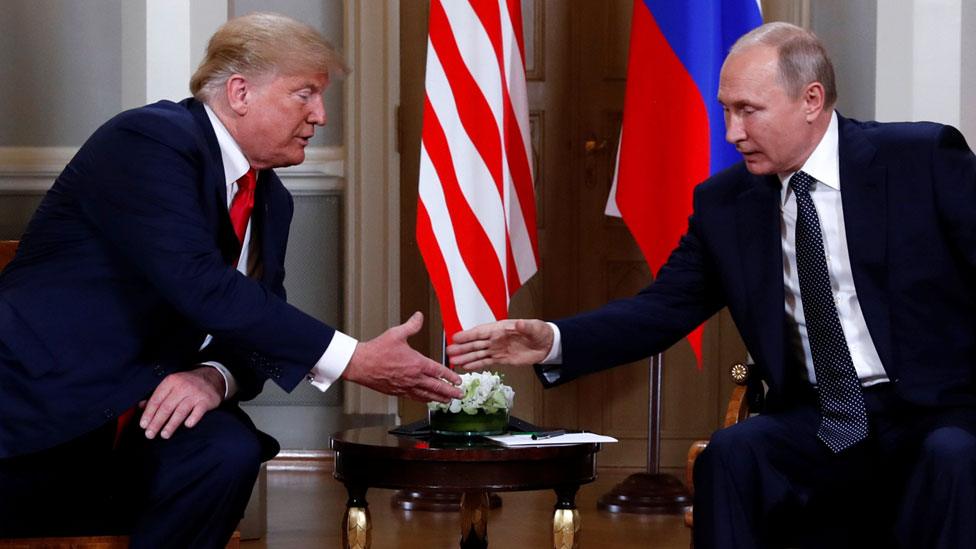
The two leaders met with only translators as witnesses
US President Donald Trump says his face-to-face meeting in Helsinki with Russian counterpart Vladimir Putin was "a good start".
After two hours of closed-door talks the two leaders went into a working lunch with their senior advisers.
Speaking earlier, Mr Putin said it was time to discuss "difficult multi-national issues".
Relations between Russia and the West were severely strained by Moscow's annexation of Crimea in 2014.
Russia is also accused of meddling in the 2016 US election, a claim it strongly denies.
Speaking before Monday's much-anticipated summit, Mr Trump said he hoped for an "extraordinary relationship" and blamed US-Russia tensions on previous administrations.
Some US politicians had called for the summit to be cancelled after 12 Russian military intelligence agents were charged on Friday with hacking the presidential campaign of Democratic candidate Hillary Clinton.
But writing on Twitter, Mr Trump put the blame for the deterioration in relations with Russia on "years of US foolishness and stupidity and now, the Rigged Witch Hunt".
In response, Russia's foreign affairs ministry tweeted: "We agree.", external
Allow X content?
This article contains content provided by X. We ask for your permission before anything is loaded, as they may be using cookies and other technologies. You may want to read X’s cookie policy, external and privacy policy, external before accepting. To view this content choose ‘accept and continue’.
The tweets are likely to alarm White House advisers already nervous about the risks of ceding too much ground to the Russian leader during the talks.
The two leaders were joined only by their interpreters during their two hours of face-to-face talks.
Their summit comes after a tumultuous European tour that saw Mr Trump sharply criticise longstanding allies of the US over trade and military spending.
Trump: I have low expectations for Putin meeting
What are the main sources of tension with Russia?
Russia has been criticised in the US because of its military support for President Bashar al-Assad in Syria as well as its destabilising actions in Ukraine.
Relations have also been damaged by accusations of Russian interference in the 2016 US election, and Trump campaign collusion in the effort. The allegations are being investigated by Special Counsel Robert Mueller.
Mr Trump has consistently denounced the inquiry as a "witch hunt". The 12 Russians indicted on Friday, external were targeted as part of Mr Mueller's investigation.
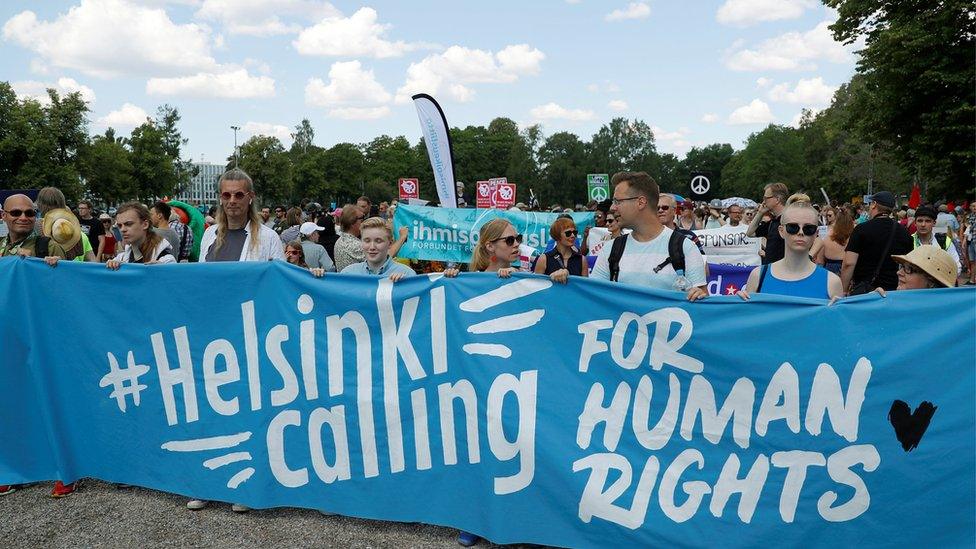
Protesters in Finland have been urging Mr Trump to focus on human rights ahead of his visit.
Top Democrats including party chairman Tom Perez urged Mr Trump to cancel the talks, saying Mr Putin was "not a friend of the United States".
On the Republican side, Senator John McCain said the summit "should not move forward" unless the president "is prepared to hold Putin accountable".
Russia denied the hacking allegations, and said it looked forward to the talks as a vehicle for improving relations.
What is being discussed at the summit?
US National Security Adviser John Bolton has said that both sides have agreed the meeting will have no set agenda. But he said he found it "hard to believe" Mr Putin would not expect the alleged election hacking to be brought up.
"That's what one of the purposes of this meeting is, so the president can see eye to eye with President Putin and ask him about it," he told ABC News.
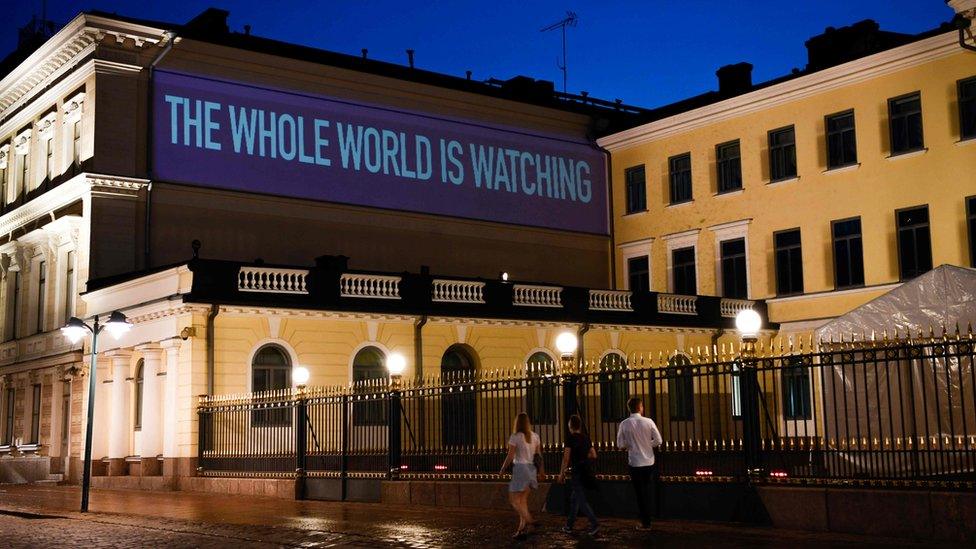
The two leaders will meet at the presidential palace in Helsinki
Mr Trump has also been urged to raise the poisoning of two people in the UK who came into contact with the nerve agent Novichok on 30 June. Investigators believe the incident is linked to the poisoning of a former Russian spy and his daughter in March.
Mr Trump elaborated on what would be discussed at the summit during a joint news conference with UK Prime Minister Theresa May last week.
"We'll be talking about Syria," he said. "We'll be talking about other parts of the Middle East. I will be talking about nuclear proliferation."
Why Helsinki?
This is not the first time US and Russian leaders have met in Helsinki.
Finland remained politically and militarily neutral after World War Two, as the US and Soviet Union went headlong into the Cold War, making it an attractive meeting spot for the two superpowers.
The city was a backdrop to the signing of the 1975 Helsinki Accords, which are credited for improving relations between the Soviet Union and Western countries.
Helsinki remained a destination in the post-Soviet era, and the Trump-Putin summit is the fourth such meeting in the city.
What has Mr Trump been doing so far in Europe?
His tour has included a Nato summit in Belgium and a visit to the UK. Neither passed without controversy. Following the Nato summit, Mr Trump said the allies had pledged to "substantially" raise their defence budgets but other leaders cast doubt on this claim.
The UK visit also had its ups and downs after Mr Trump told a newspaper the US would probably not give the UK a trade deal under the terms of Mrs May's Brexit plans - and then later appeared to backtrack on this position.
He also said Europe was "losing its character" because of immigration from Africa and the Middle East.
On Sunday, just before he departed for Helsinki, Mr Trump described the European Union as a foe on trade. He told CBS News that European countries were taking advantage of the US and not paying their Nato bills.
- Published16 July 2018
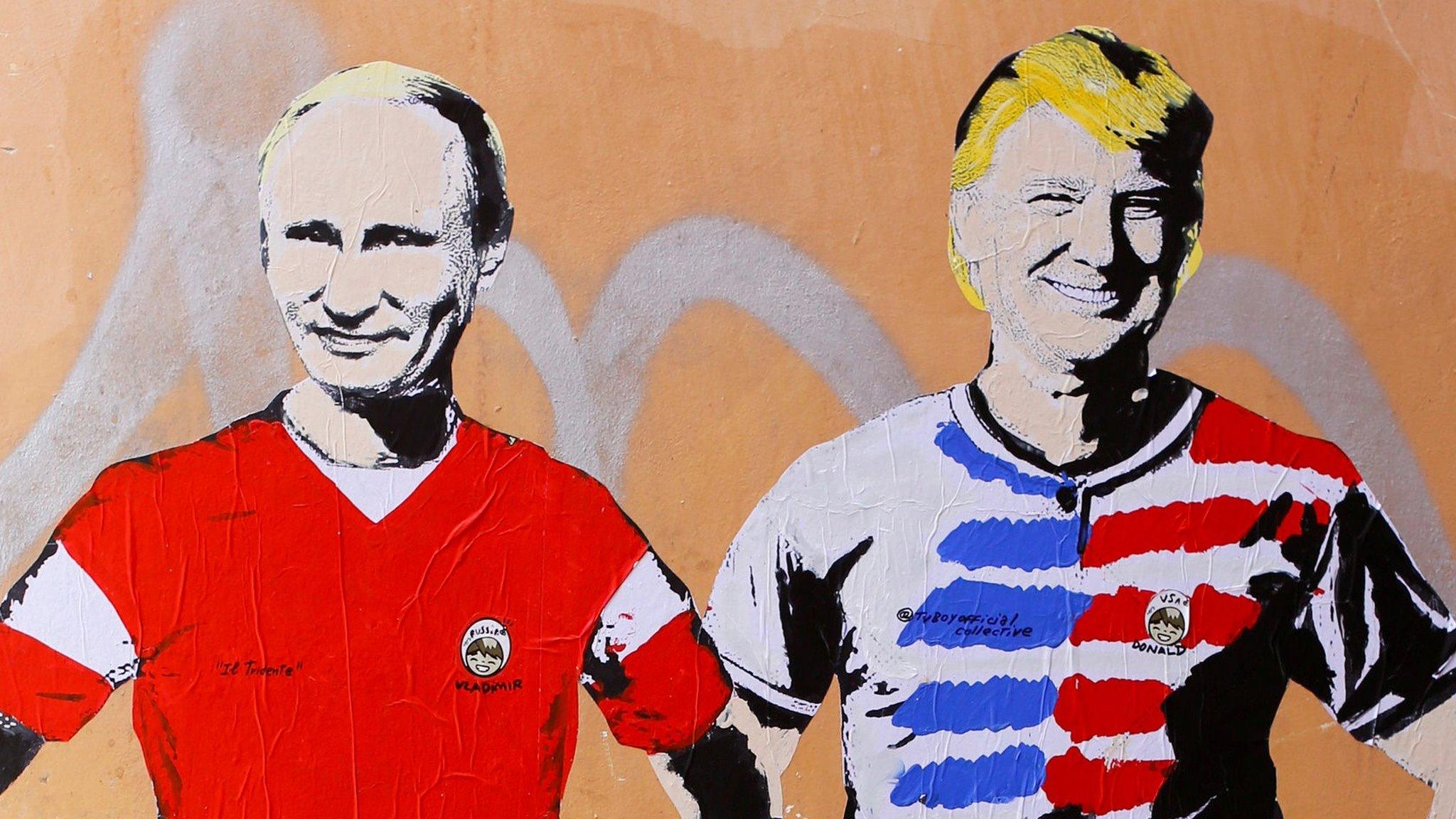
- Published15 July 2018
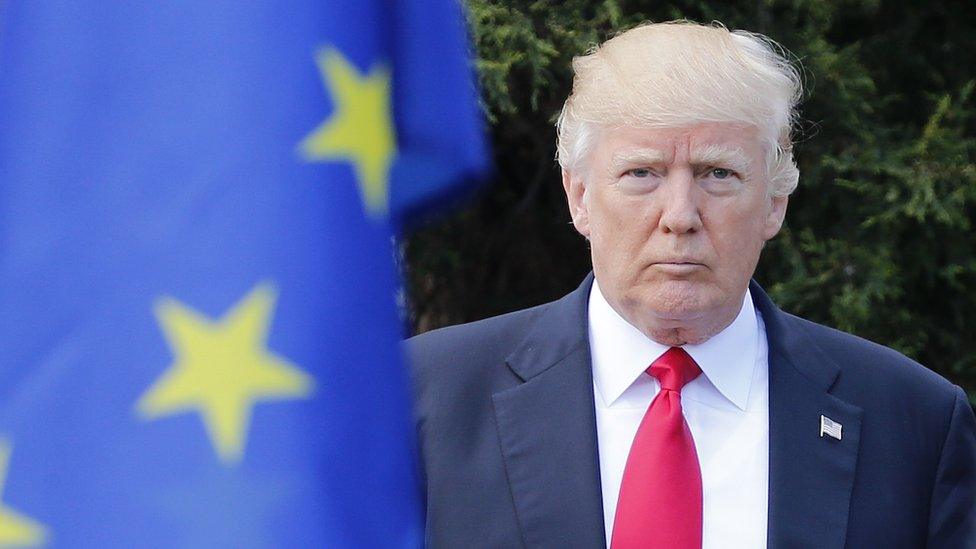
- Published13 July 2018
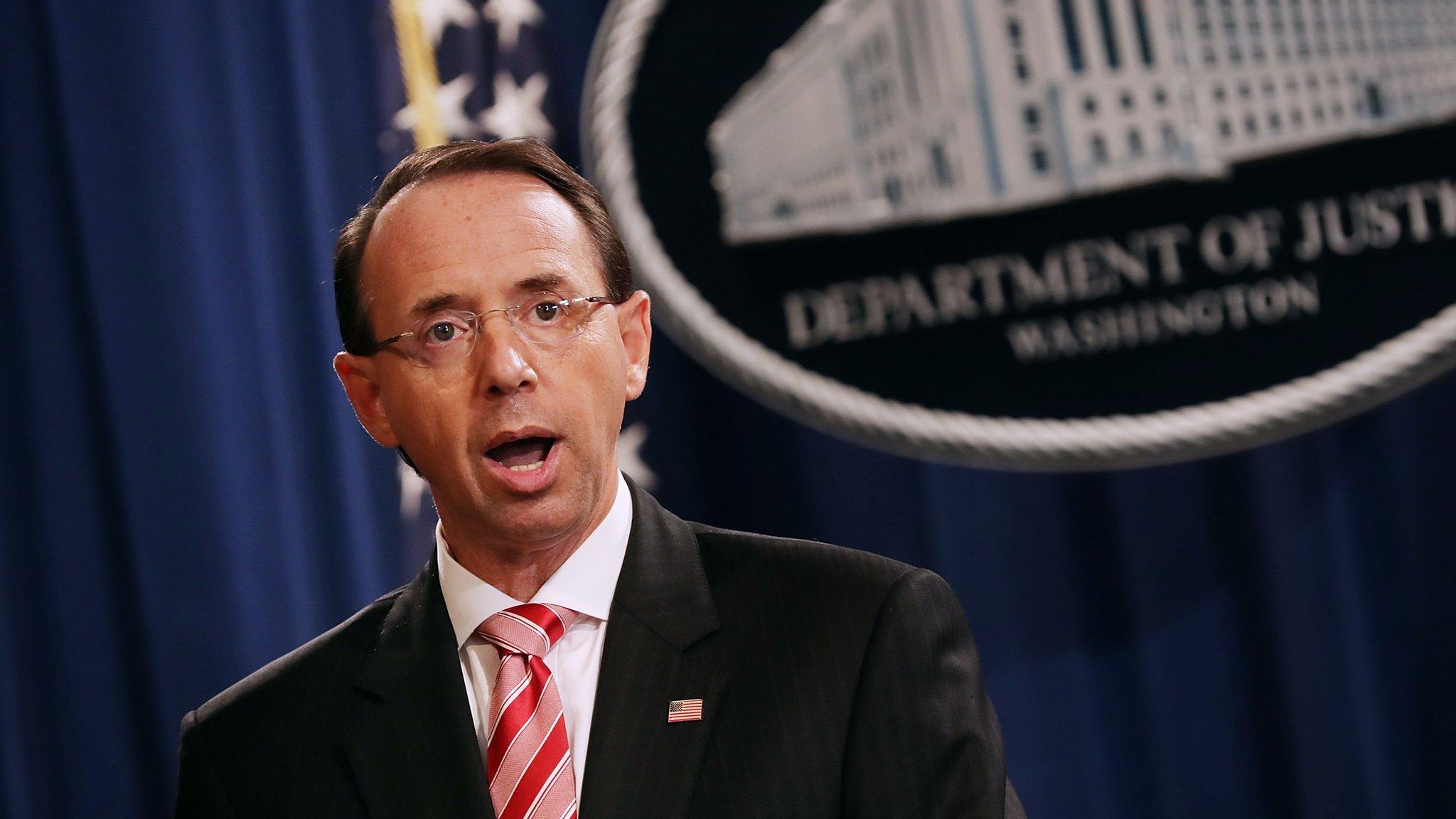
- Published13 July 2018
- Published2 May 2018
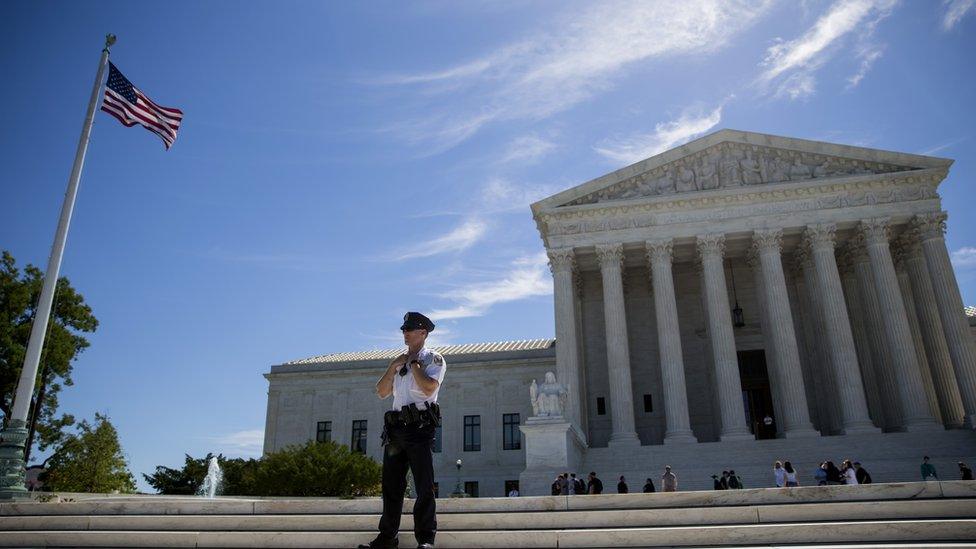
- Published24 July 2019
